Resources for Unit 10. Planet Earth – Global Success 9
| Site: | vinhphuc.topgrade.edu.vn |
| Course: | Tiếng Anh Tăng Cường lớp 9 - Vĩnh Tường |
| Book: | Resources for Unit 10. Planet Earth – Global Success 9 |
| Printed by: | Guest user |
| Date: | Wednesday, 2 July 2025, 7:27 PM |
1. Vocabulary for Unit 10. PLANET EARTH
Vocabulary for Unit 10. PLANET EARTH.
1.1. Vocabulary for Week 26. Lessons 1 - 3. U10. Global Success 9
habitat
(n) /ˈhæbɪtæt/ = environment (môi trường sống).The conservation efforts aim to protect the natural habitat of endangered species.

fauna
(n) /ˈfɔːnə/ = animals (hệ động vật).The national park is home to a diverse range of fauna.

flora
(n) /ˈflɔːrə/ = plants (hệ thực vật).The botanist studies the local flora to understand the ecosystem.
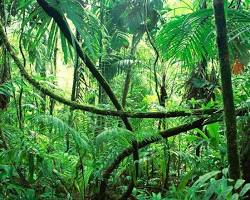
landforms
(n) /ˈlændfɔːrmz/ = terrain features (các hình thái địa hình).The region's unique landforms attract geologists from around the world.

pollution
(n) /pəˈluːʃn/ = contamination (sự ô nhiễm).Efforts to reduce pollution are crucial for environmental sustainability.

essential
(a) /ɪˈsenʃl/ = necessary (thiết yếu).Clean water is an essential requirement for all living organisms.

preserve
(v) /prɪˈzɜrv/ = protect, conserve (bảo tồn).It's our duty to preserve the planet for future generations.
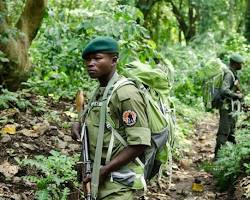
relative clauses
(n) /ˈrelətɪv ˈklɔːzɪz/ = descriptive clauses (mệnh đề quan hệ).Understanding relative clauses enhances the complexity of writing.
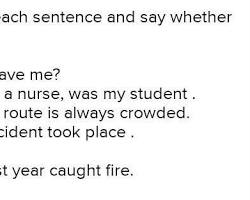
rhythm
(n) /ˈrɪðəm/ = beat (nhịp điệu).The music had a captivating rhythm that made everyone dance.

stressed syllables
(n) /strest ˈsɪləblz/ = accented sounds (âm tiết có trọng âm).In English, words often have one or more stressed syllables.
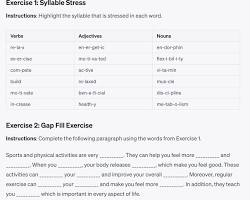
unstressed syllables
(n) /ʌnˈstrest ˈsɪləblz/ = unaccented sounds (âm tiết không trọng âm).Pay attention to the pronunciation of unstressed syllables in words.
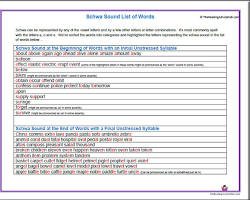
pronunciation
(n) /prəˌnʌnsiˈeɪʃn/ = articulation (cách phát âm).Good pronunciation is essential for effective communication.
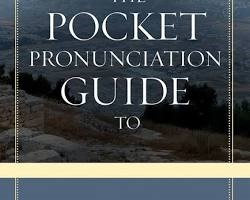
outer space
(n) /ˈaʊtər speɪs/ = cosmos (không gian ngoài).Astronauts explore the mysteries of outer space.

solar system
(n) /ˈsoʊlər ˈsɪstəm/ = planetary system (hệ mặt trời).The solar system consists of the sun, planets, and other celestial bodies.
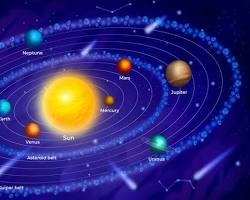
climate change
(n) /ˈklaɪmət tʃeɪndʒ/ = global warming (biến đổi khí hậu). Urgent action is needed to address the challenges of climate change.
1.2. Vocabulary for Week 27. Lessons 4 - 7. U10. Global Success 9
ecosystems
(n) /ˈɛkəˌsɪstəm/ = a community of living organisms (hệ sinh thái)A forest is a complex ecosystem that provides habitat for many different species of plants and animals.
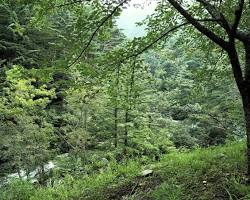
biodiversity
(n) /baɪ.oʊˈdɪvər.sɪti/ = the variety of life forms (đa dạng sinh học)The Amazon rainforest is known for its incredible biodiversity.

conservation
(n) /kən.sɜrˈveɪ.ʃən/ = protection, preservation (bảo tồn)Conservation efforts are underway to protect endangered species.

sustainable
(a) /səˈsteɪ.nə.bəl/ = able to be maintained at a steady level without being exhausted or damaged (bền vững)We need to find more sustainable ways of living in order to protect the environment.

endangered species
(n) /ɪnˈdeɪndʒəd ˈspiːʃiːz/ = a type of animal or plant that is at risk of disappearing forever (các loài có nguy cơ tuyệt chủng)The giant panda is an endangered species.

deforestation
(n) /dɪˌfɔrɪˈsteɪ.ʃən/ = the cutting down of trees (phá rừng)Deforestation is a major threat to the environment.
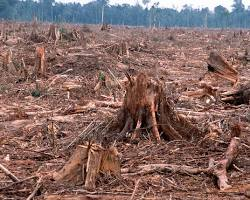
pollutants
(n) /pəˈlutənts/ = substances that make something dirty or impure (chất gây ô nhiễm)Car exhaust fumes are a major pollutant in cities.

ecosystems services
(n) /ˌɛkəˌsɪstəm sərvɪsɪz/ = the benefits that people get from ecosystems (dịch vụ hệ sinh thái)Healthy ecosystems provide us with a number of essential services, such as clean air and water.
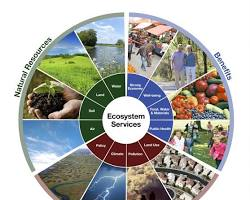
habitat destruction
(n) /ˈhæbɪ.tat dɪˈstrʌk.ʃən/ = the damage of natural home (phá hủy môi trường sống)Habitat destruction is a major cause of extinction.
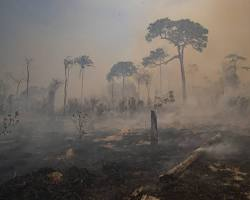
environmental impact
(n) /ɪn.vaɪ.rənˈmɛntəl ˈɪmˌpækt/ = the effect on the environment (tác động môi trường)It is important to consider the environmental impact of our actions.

natural resources
(n) /ˈnætʃ.ərəl rɪˈzɔːrsɪz/ = materials in nature (tài nguyên thiên nhiên)We need to conserve our natural resources for future generations.
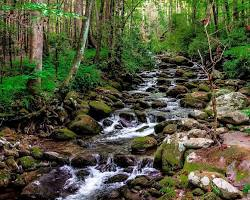
renewable energy
(n) /rɪˈnjuː.ə.bəl ˈɛnər.dʒi/ energy that can be replaced naturally (năng lượng tái tạo)Solar and wind power are examples of renewable energy.

conservation efforts
(n) /kən.sɜrˈveɪ.ʃən ˈɛf.ərts/ = actions to protect the environment (nỗ lực bảo tồn)Conservation efforts are needed to protect endangered species.

climate action
(n) /ˈklaɪ.mət ˈæk.ʃən/ = action taken to address climate change (hành động về khí hậu)We need to take climate action now to avoid the worst effects of climate change.
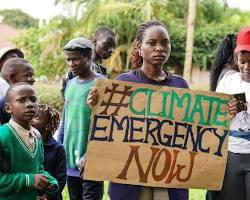
wildlife
(n) /ˈwaɪld.laɪf/ = animals that live in the natural world (động vật hoang dã) Many species of wildlife are threatened by habitat loss.
2. Grammar for Unit 10. Non-defining relative clauses
1. RELATIVE CLAUSES (Mệnh đề quan hệ) NON-DEFINING ADJECTIVE CLAUSES (Mệnh đề tính từ không xác định).
Mệnh để tính từ không xác định (Non- defining adjective clauses) là phần giái thích hay thêm thông tin cho tiền ngữ (antecedent); chúng ta có thể bỏ nó đi, nhưng tiền ngữ vẫn rõ nghĩa.
1. Mệnh đề tính từ không xác định có những đặc điểm sau:
- luôn được ngăn cách bởi dấu phẩy (commas),
e.g.: It was John, who called you last night.
(Đó là John, người điện thoại cho bạn đêm qua.)
The Nile River, which is the longest ill the world, is in the northeast of Africa.
(Sông Nile, sông dài nhất thế giới, ở đông bắc Phi châu)
2. Tiền ngữ (antecedent) là từ xác định (definite noun).
a. danh từ riêng (proper nouns).
e.g.: Nguyen Du, who wrote the work “Kim Van Kieu, is a Kreat Vietnamese poet”.
(Nguyễn Du, người viết tác phẩm “Kim Vân Kiều”, là một thi hào Việt Nam.)
Mount Ba Đen, which is the highest in the south, is in Tay Ninh province.
(Núi Bà Đen, là ngọn cao nhất miền nam, ở tỉnh Tây Ninh.)
b. Từ được bổ nghĩa bởi sở hữu tính từ (possessive adjectives : my, your, her, his, ...) hay chỉ thị tính từ (demonstrative adjectives : this f these, that / those).
e.g.: That building, where they worked two years ago, is used as a guest house.
(Cao ốc kia, nơi họ làm việc cách đây hai năm, giờ được dùng làm nhà khách.)
This book, which you gave me last summer, is very interesting.
(Cuốn sách mà bạn cho tôi mùa hè qua, rất hay.)
- từ được bổ nghĩa bởi một cụm tính từ (an adjective phrase).
e.g.: The man in black, who’s speaking to the principal, is an environmental activist.
(Người đàn ông mặc đồ đen, người đang nói chuyện với hiệu trưởng, là nhà hoạt động môi trường.)
c. Đại từ quan hệ làm túc từ (objective relative pronouns) không được bỏ (như ở mệnh đề tính từ xác định).
e.g.: That boy. whom you saw in the library last week, is the best in my class.
(Cậu ấy, người bạn thấy ở thư viện tuần qua, là học sinh giỏi nhất lớp tôi.)
The books on top of the shelf, which you recommended me, are Dickens’s novels.
(Những cuốn sách trên kệ, (mà) bạn giới thiệu cho tôi, là tiểu thuyết của Dickens.)
d. Từ "THAT" không bao giờ được dùng.
3. Video Lecture for Unit 10. PLANET EARTH
Video Lecture for Unit 10. PLANET EARTH.
4. Hướng Dẫn & Thực hành Phát Âm Unit 10 (Global Success 9)
Bấm vào các link Mục lục (Table of Contents) để xem Video Hướng dẫn và Thực hành Phát âm.
Phần Thực hành phát âm nên học trên máy tính.
4.1. Thực hành phát âm – Pronunciation. Practice. Unit 10
Rhythm in sentences
Click the buttons to listen, say aloud, and record. Compare your voice with the sample pronunciation. Practice each sentence at least 3 times.